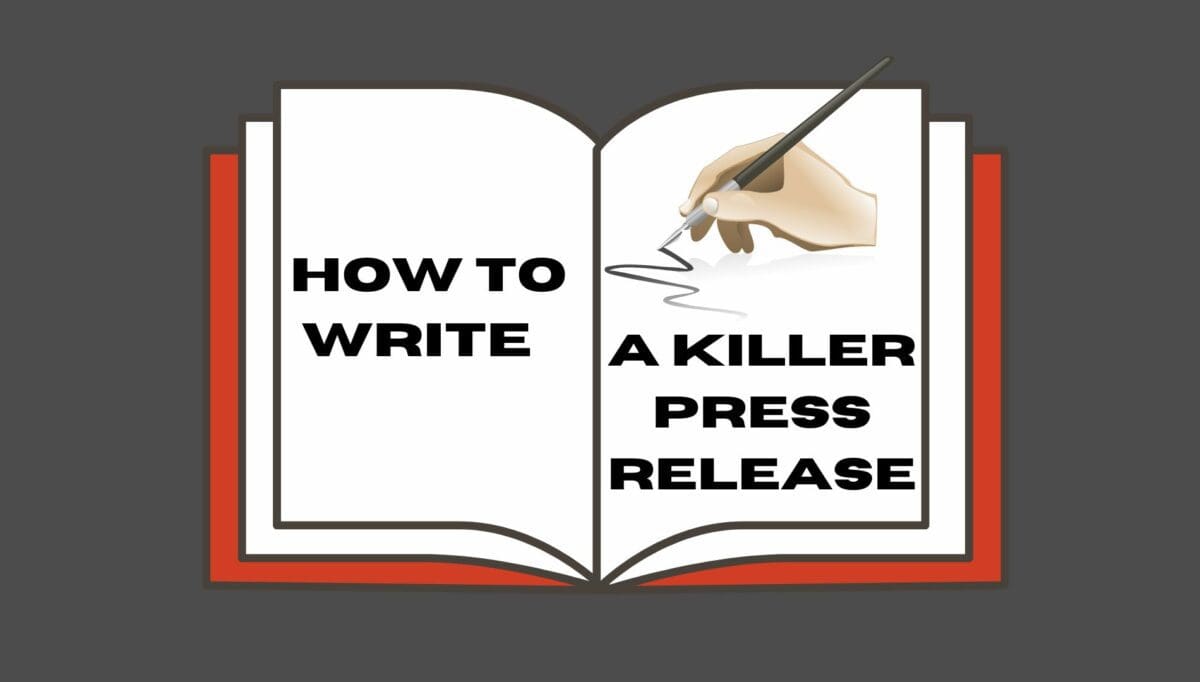Are you panicking because you’re due on stage tonight and you’ve got a raspy sound? Perhaps you have a recording session booked and your vocals have disappeared completely!?
There are a number of possible loss of singing voice causes, with varying degrees of severity and likely duration. But don’t worry, the good news is there’s much you can do to get your voice back – and ways to prevent the same thing from happening in future.
Read on to identify what’s gone wrong, how you can fix it and whether you need to seek specialist advice.
Loss of singing voice causes
Voice loss is not uncommon among singers, just like injury is not unusual in sport. But, as professional athletes must do everything possible to look after their bodies (eating well, warming up and down, recognising when there’s a weakness), so must you. Many of the famous names in the industry haven’t heeded these warnings and have paid the price as a result.
Loss of singing voice causes vary and most are nothing to worry about, just a sign that you need to take a little extra care and rest. Let’s take a deep dive into the seven possible issues you might encounter in your career as a singer.
#1 Vocal Fatigue
The most likely reason, if you’re a less experienced singer, will be overuse. This kind of hoarseness or voice loss should pass quickly. But you should follow these rules:
- Don’t scream and shout excessively
- Avoid too much alcohol, nicotine and vaping
- Rest when your voice feels tired and never continue if it’s hurting in any way
- Avoid singing on your throat – learn correct breathing technique and release any tension
- Don’t sing out with your range (apart from gentle exercises to gradually increase your range safely)
#2 Hoarse voice and mucus in throat
If you know you’ve not been oversinging or pushing your voice to excess, the next most likely cause is an infection. Common colds, flu and other viruses can all cause voice loss. The body produces mucus to protect the delicate membranes from invading germs. However, this clogs up the vocals, causes coughing and sinus blockages, all of which are the enemy of the singer. However, this is also a frequent event that you’ll have to deal with as a professional singer and to some degree is unavoidable. You can reduce the number of viruses you catch by doing the following:
- Wash your hands regularly, especially when out and about touching surfaces in public spaces
- Eat a healthy, nutritious balanced diet to boost your immunity
- Exercise regularly
- Take rest, relax and have fun! This too boosts the immune system
- Supplements like echinacea and vitamin D during winter months can be helpful
#3 Laryngitis
If your infection is more pronounced, you may develop laryngitis. This is an inflammation and swelling of the larynx or voice box, usually resulting from infection. Your vocal cords can’t move freely when they’re enlarged, meaning you struggle to speak and can only make a coraking sound. You may also develop laryngitis from oversinging if you’ve sufficiently irritated the larynx. If you have no other symptoms, this is likely to be the case. However, if your laryngitis occurs simultaneously with a cold, the virus will be the root cause.
If you strain or tire your voice at all while suffering from a respiratory infection, you’re much more likely to develop laryngitis as the voice is already compromised. This is why it’s so important to go easy when you’re sick. Laryngitis may pass in a day or two, or it could go on for up to a fortnight.
#4 Vocal cord nodules
Here we venture into more serious territory. Many singers get nodules (or cysts, or polyps), so it’s not a reason to panic. However, it is a reason to re-evaluate your technique and make some changes. Most importantly you must rest and seek medical advice. At this stage, it’s not an option to carry on regardless, or you could find yourself with major problems. Symptoms of nodules are:
- Raspiness
- Breathiness
- Inability so sing the notes you used to
- Sudden change in register
- Persistent, ongoing hoarseness
Some famous singers who overcame this issue include Mariah Carey, Whitney Houston, Freddie Mercury, Luciano Pavarotti, Rod Stewart, Shirley Manson and Joss Stone. There are some patterns here. Singers with gravelly voices and those who belt ‘big’ powerful numbers are most at risk.
#5 Vocal cord paralysis
One or both of your vocal cords can be affected by this rare syndrome. It’s usually triggered by an injury or health condition such as a tumour, multiple sclerosis or Parkinson’s. Occasionally it’s a result of extreme inflammation. Surgery is sometimes required to restore communication between nerves in the vocal cords and brain, but it may just resolve on its own after around a year, alongside speech therapy. Symptoms of vocal cord paralysis are:
- Breathiness
- Hoarseness
- Noisy breathing
- Loss of pitch
- Trouble swallowing and loss of gag reflex
- Increased need for breath refills
- Inability to project when speaking
- Persistent coughing and throat clearing
#6 Permanently damaged vocal cords
We must stress that this is very rare indeed. Especially nowadays with all the medical interventions available. But there are some cautionary tales in this category of cause. Never think that your voice is invincible. You must take care of it, as permanent damage will be the result of ignoring the warning signs like nodules, haemorrhage, and bruising.
Julie Andrews suffered from throat nodules, and unfortunately experienced further – and permanent – damage following surgery to remove them in 1997. Sadly, this ended her singing career and she sued the hospital.
#7 Vocal cord haemorrhage
Adele, on the other hand, recovered from a serious vocal injury, a haemorrhage. While she was forced to cancel the tour, she bounced back after she had surgery to deal with the issue. She now has to avoid acidic foods that cause reflux – something that contributed to her haemorrhage. If you’re prone to this kind of thing like Adele, you may need to make changes to your diet.
Unfortunately, haemorrhages can recur if lifestyle changes are not made. Jess Glynne underwent vocal cord surgery in 2009 and 2015, yet again last year, she was forced to cancel major gigs due to a vocal haemorrhage.
This caused a lot of controversies, as Jess had been seen partying hard with the Spice Girls shortly before pulling out of the Isle of Wight Festival. While it may be a separate issue, we do know that lack of sleep, alcohol and smoky environments are terrible for your vocals. Jess has a superb sound, so these vocal issues are a growing concern for the artist. A haemorrhage isn’t painful, but it will cause sudden hoarseness and render you unable to sing.
Get your voice back
Now onto the most important part. How do you get your voice back to health, so you can carry on as normal?
The first thing to do is to rest until your voice returns to normal. This includes getting plenty of shut-eye. Most muscle and tissue repair happen while we’re in REM sleep. So if you’re burning the candle at both ends, you’re reducing your time to heal. Lay off the belting and vocal fry, instead choosing songs that don’t tax or stretch you.
Once your voice returns, make sure it stays back, by gentling warming up and down before singing. Humming and sirens are excellent techniques to safeguard the vocals while they’re weak.
How to get your voice back quickly from a cold
Colds are relatively easy to recover from and there are several relatively quick-fix solutions to the hoarseness that comes with a bug. Steaming, throat coat tea, VocalZone pastilles and plenty of liquid will make a big difference to your gig.
If you have a cold, the key is to clear the mucus. You can find out more about how to do this specifically by reading our article on clearing the vocal cords.
How do you cure a lost voice?
You’ll see Kate Nash steaming her vocals while on tour, in the recent BBC documentary Kate Nash: Underestimate the Girl. She talks about how she sometimes suffers voice loss and the challenges that arise when performing night after night. Kate shares some useful tips for working i the industry, so the programme is worth a watch.
If the reason for your hoarseness and excess mucus is an allergy, then you may need to take a slightly different course of action. Anti-histamines are a simple, cheap, fast and effective solution. However, some have a soporific effect, so opt for the non-drowsy versions if you have a busy day ahead. You can find out more on the specific issue of allergies and singing here.
Damaged vocal cords – how to heal them
As you’ll have noticed, many of the symptoms of loss of singing voice causes are similar. As such you have to be careful not to get a self-diagnosis wrong. The golden rule is, if it persists, see a doctor. We all experience occasional croakiness and intermittent changes. However, significant changes are signs to which you must pay attention. Most healing regimes for more serious issues will involve rest and gentle exercises to recuperate.
You may need some tests to investigate. This is nothing to worry about and maybe a fascinating insight into how your own vocal anatomy works. But you should follow the guidance of a specialist. Working with a recognised vocal coach who has plenty of experience, is always a good idea too.
Vocal cord problems
Here is how some of the stars have fixed their vocal cord problems.
- Björk had vocal nodules and spent three years doing special vocal exercises, so as to avoid surgery.
- Elton John opted for surgery to remove his nodules in 1987 and recovered, but his voice deepened as a result. Frank Sinatra took a month-long vow of silence and carried on crooning afterwards.
- Miley Cyrus recently underwent vocal cord surgery followed by several weeks of silence.
- Sam Smith used the same surgeon as Adele for a procedure to correct unstable blood vessels in his vocal cords – preventing a future haemorrhage.
- John Mayer was diagnosed with vocal granuloma (a kind of inflammation) in 2011 and for which he had surgery. It changed his voice, but he works with the new sound.
- Rod Stewart had surgery for throat cancer. It took 9 months to get his voice back afterwards.
- Keith Urban was prescribed thee weeks of vocal rest after undergoing surgery for a polyp in 2011.
- Meghan Trainor had to endure a long period of silence and re-train her voice after multiple vocal haemorrhages in 2015 and 2018.
Hoarseness, croakiness, sore throat or cracking shouldn’t hold you back long-term. Learn the lessons (and mistakes) from other singers and adapt before you too, have to cancel gigs. Think of your voice like a priceless instrument and care for it in the same way as you would a valuable violin.
Related Questions
- What causes loss of voice with no pain?
Any of the causes we’ve listed can occur without pain. It depends on the severity and parts of the vocals that have been affected. Pain is a concerning sign indicating that force being placed on the voice or a that you have a chronic sore throat. Take painkillers, but be sure to rest.
- Is honey good for laryngitis?
While honey isn’t the magic cure it’s often touted to be, it can ease and soothe a sore throat. If your laryngitis is caused by an allergy, this won’t help. Be sure to use high-quality honey like manuka, which has antibacterial and antimicrobial properties great for fighting infections.
- How long does it take to get your voice back?
It depends on the underlying cause of the loss. If it’s just fatigue or a cold, you may simply need a day off and to adjust your repertoire. If it’s very serious you may be prescribed months of vocal rest.
Have you identified your loss of singing voice cause? Perhaps you’ve experienced issues like these? If so, let us know how you managed to get your voice back.










